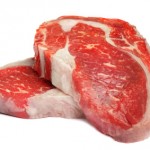What Is The Truth About Carnitine And Heart Disease?
Author: Dr. Stephen Chaney
 If you are a weightlifter or bodybuilder, chances are you are taking an L-carnitine supplement, or a protein shake fortified with L-carnitine. That is because L-carnitine has been promoted for increasing muscle mass and physical performance for so long that most people have come to believe it must be true. Is it true, or is it just another food myth?
If you are a weightlifter or bodybuilder, chances are you are taking an L-carnitine supplement, or a protein shake fortified with L-carnitine. That is because L-carnitine has been promoted for increasing muscle mass and physical performance for so long that most people have come to believe it must be true. Is it true, or is it just another food myth?
If you visit Dr. Strangelove’s website, you may also be told that carnitine supplementation is beneficial for weight loss, migraines, baldness, ADHD and autism, chronic fatigue syndrome, and/or low energy, muscle loss, and cognitive decline in older adults. Are these claims fact or fiction?
On the flip side, recent studies have suggested that the carnitine in red meat might be bad for your heart. Could the same be true for carnitine supplements? Could they also be bad for your heart?
A recent systematic review (AG Sawicka et al, Journal of the International Society of Sports Nutrition, 17: 49, 2020) of L-carnitine supplementation answers these important questions. The authors called their study “The bright and dark sides of L-carnitine supplementation” because they set out to systematically investigate the benefits and potential risks of L-carnitine supplementation.
But before I share the results of this study, I need to give you a little background on L-carnitine. It is time for another Biochemistry 101 segment.
Biochemistry 101: What You Need To Know About Carnitine
 Carnitine plays an essential role in human metabolism. It is required for transport of fatty acids into our mitochondria so they can be used to generate energy. Without carnitine we would be unable to utilize most of the fats in our diet as an energy source.
Carnitine plays an essential role in human metabolism. It is required for transport of fatty acids into our mitochondria so they can be used to generate energy. Without carnitine we would be unable to utilize most of the fats in our diet as an energy source.
As you might expect, carnitine is essential for any tissues that have mitochondria, but it is particularly important for high energy tissues like skeletal and heart muscle.
For most of us, our liver and kidneys make all the carnitine we need. So, we don’t really need carnitine from food or supplements.
However, we do get significant amounts of carnitine from red meat, much smaller amounts of carnitine from other animal foods, and almost no carnitine from plant foods. Adults consuming diets with red meat and other animal foods get about 60-180 mg of carnitine a day from their diet, whereas vegans only get around 10-12 mg/day.
Uptake of carnitine from the blood into muscle tissues requires insulin. Thus, carnitine uptake into muscle is significantly less on a low-carbohydrate or keto diet than it is on a mixed diet containing carbohydrates.
Finally, our kidneys do an excellent job of regulating blood carnitine levels, with excess carnitine being excreted into the urine. Thus, total body carnitine levels are virtually the same with high-carnitine and low-carnitine diets.
 This raises the question: “Are L-carnitine supplements good for you?”
This raises the question: “Are L-carnitine supplements good for you?”
Now, let’s talk about the dark side of carnitine. I have discussed this in a previous issue of “Health Tips From the Professor”. Here is a brief summary:
- People who eat a lot of red meat harbor a species of bacteria in their intestine that converts carnitine to trimethylamine (TMA). We don’t know whether this species of gut bacteria is favored by the presence of red meat in the diet or the absence of certain fruits, whole grains, and legumes from the diet of meat eaters.
- The TMA is reabsorbed into the bloodstream, and the liver converts TMA to TMAO (trimethylamine N-oxide).
- TMAO is associated with an increased risk of heart attack, stroke, and heart failure.
When you think about it, this is a perfect example of double jeopardy. Red meat is high in carnitine, and red meat eaters have gut bacteria that result in carnitine being converted to a compound that may increase the risk of heart disease.
This raises the question: “Are L-carnitine supplements bad for you?”
Let’s look at these two questions. First, I will discuss the recent review. Then I will put the conclusions of that review into perspective by looking at what other health experts say
Are Carnitine Supplements A Boon Or A Bust?
 Most previous studies of carnitine supplementation have lasted only two or three weeks, which may not be long enough to measure an effect of carnitine supplementation on performance. So, the authors of this review paper selected studies that lasted 11 weeks or more for their review.
Most previous studies of carnitine supplementation have lasted only two or three weeks, which may not be long enough to measure an effect of carnitine supplementation on performance. So, the authors of this review paper selected studies that lasted 11 weeks or more for their review.
The review included 11 studies. They lasted either 12 or 24 weeks. Participants received doses ranging from 1 gm to 4.5 gm of L-carnitine per day. Here are the conclusions of the review:
- Participants receiving L-carnitine alone had no increase in muscle carnitine content.
- Participants receiving L-carnitine + 80 grams of carbohydrate had around a 10% increase in muscle carnitine content. [To put that into perspective, 80 grams of carbohydrate is roughly equivalent to 2 cups of white rice or two medium potatoes.]
- One study compared male vegetarians with male omnivores. The omnivores had no increase in muscle carnitine content, but the vegetarians did. [The study did not analyze the diets of the omnivores and vegetarians, but it is probably safe to assume that the carbohydrate content was higher on the vegetarian diet.]
- There was no significant effect of L-carnitine on muscle mass or physical performance. [This is logical, given the minimal effect of L-carnitine supplementation on muscle carnitine levels.
Thus, this review found little evidence that L-carnitine supplementation was good for you. It resulted in little or no increase in muscle carnitine levels or in physical performance.
- Two of the 11 studies measured plasma TMAO levels. These studies found that L-carnitine supplementation resulted in a significant increase in plasma TMAO levels.
Thus, this review found some evidence that L-carnitine supplementation might be bad for you.
What Is The Truth About Carnitine And Heart Disease?
 Is carnitine good for you? With respect to this question, the conclusions of this review are similar to the conclusions of other health experts.
Is carnitine good for you? With respect to this question, the conclusions of this review are similar to the conclusions of other health experts.
For example, in their Fact Sheet On Carnitine For Health Professionals the NIH states “Some athletes take carnitine to improve performance. However, twenty years of research finds no consistent evidence that carnitine supplements can improve exercise or physical performance in healthy subjects—at doses ranging from 2–6 grams/day administered for 1 to 28 days. For example, carnitine supplements do not appear to increase the body’s use of oxygen or improve metabolic status when exercising, nor do they necessarily increase the amount of carnitine in muscle.”
The NIH fact sheet goes on to list some diseases causing muscle loss or muscle weakness, for which L-carnitine supplementation is appropriate. However, in these cases, the carnitine supplementation should be recommended by health professionals.
Is carnitine bad for your heart? The link between carnitine and heart disease risk is a bit more complicated. As I mentioned above, there is an association between red meat consumption and blood TMAO levels and an association between blood TMAO levels and heart disease.
Is it TMAO that increases the risk of heart disease or is it some other component (saturated fat, for example) of red meat that increases the risk of heart disease? Nobody knows. More research is needed.
There is also a “red herring” that complicates the TMAO story. It turns out that TMAO helps fish survive the high pressures they encounter in the deep ocean. Thus, many fish are high in TMAO, and fish consumption also increases blood TMAO levels.
Are the bad effects of TMAO in fish outweighed by the heart healthy components in fish (omega-3s, for example)? Nobody knows. More research is needed.
To summarize:
1) There is no reason to take L-carnitine supplements unless directed by your health professional. There is little evidence they will help your physical performance. There is also no good evidence to support the other benefits of L-carnitine you find listed on Dr. Strangelove’s blog or the website of your favorite supplement company.
2) L-carnitine supplements may be bad for your heart, but much more research will be needed to be sure. [Note: Based on what we know about the role of gut bacteria in TMAO production, vegans could probably take L-carnitine supplements without causing an increase in TMAO levels. However, that is probably a moot point. There is no evidence that L-carnitine is more effective for vegans than it is for omnivores.]
The Bottom Line
If you are a weightlifter or bodybuilder, chances are you are taking an L-carnitine supplement, or a protein shake fortified with L-carnitine. That is because L-carnitine has been promoted for increasing muscle mass and physical performance for so long that most people have come to believe it must be true. Is it true, or is it just another food myth?
On the flip side, recent studies have suggested that the carnitine in red meat might be bad for your heart. Could the same be true for L-carnitine supplements? Could they also be bad for your heart?
A recent review looked at these questions. Here are the conclusions of the review:
- Participants receiving L-carnitine alone had no increase in muscle carnitine content.
- Participants receiving L-carnitine + 80 grams of carbohydrate had around a 10% increase in muscle carnitine content. [To put that into perspective, 80 grams of carbohydrate is roughly equivalent to 2 cups of white rice or two medium potatoes.]
- There was no significant effect of L-carnitine on muscle mass or physical performance. [This is logical, given the minimal effect of L-carnitine supplementation on muscle carnitine levels.
Thus, this review found little evidence that L-carnitine supplementation was beneficial. It resulted in little or no increase in muscle carnitine levels or in physical performance.
- This review also found that L-carnitine supplementation resulted in a significant increase in plasma TMAO, a compound that has been associated with an increased risk of heart disease.
Thus, this review found some evidence that L-carnitine supplementation might be bad for you.
The NIH has also issued a fact sheet for health professionals summarizing research on L-carnitine over the past 20 years. The conclusions from their fact sheet can be best summarized as:
1) There is no reason to take L-carnitine supplements unless directed by your health professional. There is little evidence they will help your physical performance. There is also no good evidence to support the other benefits of L-carnitine you find listed on Dr. Strangelove’s blog or the website of your favorite supplement company.
2) L-carnitine supplements may be bad for your heart, but much more research will be needed to be sure.
For more details read the article above.
These statements have not been evaluated by the Food and Drug Administration. This information is not intended to diagnose, treat, cure or prevent any disease.



